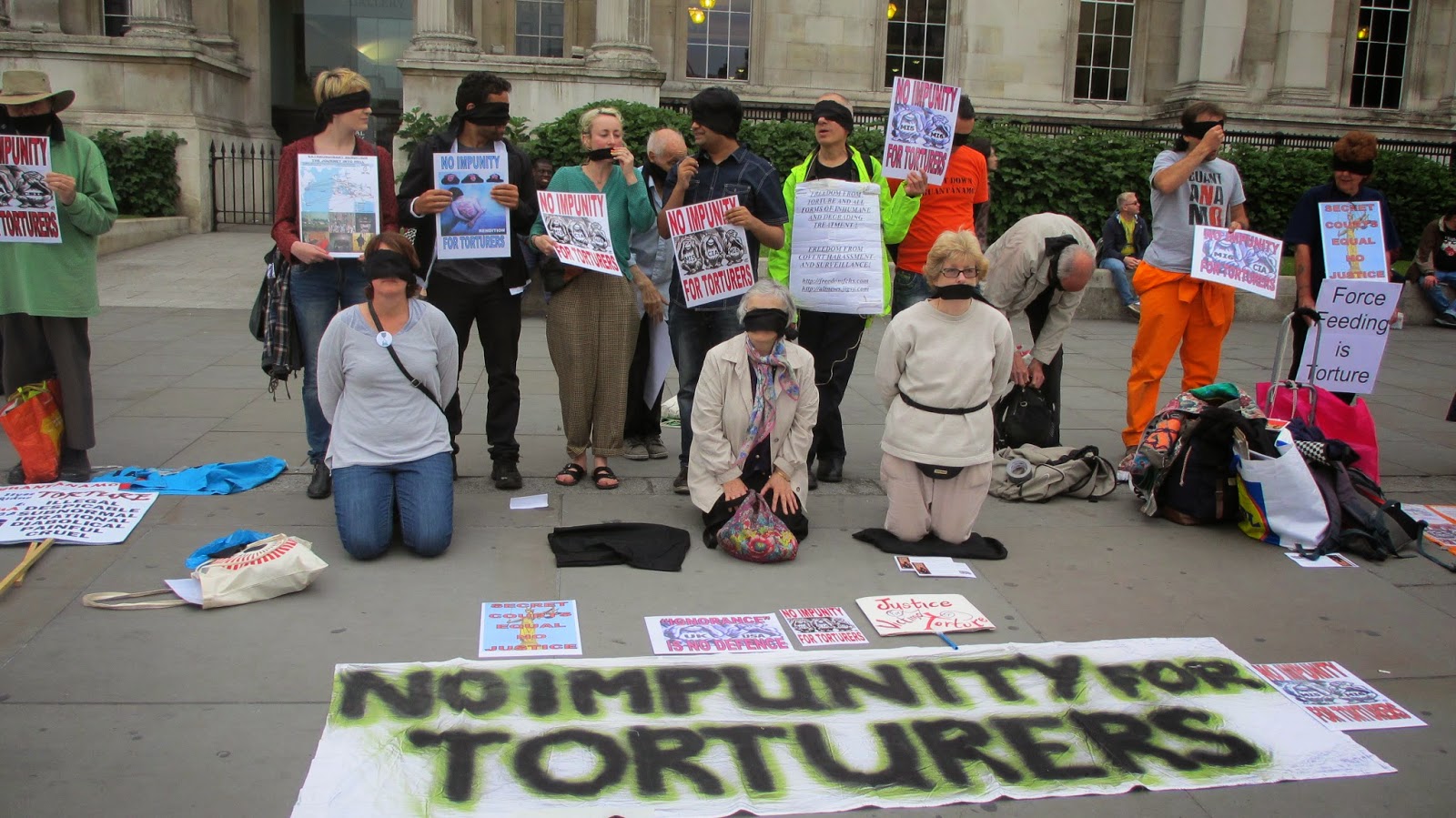Guantánamo Bay
Pre-trial hearings continued in the case of prisoners accused of involvement in the September 2001 attacks in New York City. The number of defendants has fallen from five to four after a judge found that Saudi prisoner Ramzi bin al-Shibh is unfit for trial, “after a military medical panel found that sustained abuse had rendered him lastingly psychotic”. He remains in detention but only his co-defendants remain on trial.
Ahead of the hearings resuming, in ongoing plea bargaining between the prosecutors and lawyers for the defendants, the Biden administration rejected a set of proposed conditions for the plea deal made by the men, which would include medical care for physical and mental trauma afflicted during their time in CIA custody and no solitary confinement. In March 2022, prosecutors offered a deal to avoid the death penalty in the case if the defendants pleaded guilty to their alleged roles in the attacks. However, Biden’s decision to reject these conditions could make such a deal harder to reach. The US administration has generally not engaged with the plea bargain proposed, leaving the matter to prosecutors and the defence to decide on. Some families of the deceased would like to see a trial for the five accused men rather than a plea bargain.
https://www.nytimes.com/2023/09/06/us/sept-11-trial-plea-biden-guantanamo.html
On 15 September, a group of UN experts issued a statement warning against the expulsion of former Russian prisoner Ravil Mingazov from the UAE, where he was resettled but not released in 2017, to Russia, where he would be at risk if repatriated against his will. The experts called for his immediate release: “We call on the Governments involved to observe their international obligations, honour the diplomatic assurances provided for resettlement, and take into account the substantiated risks to Mr. Mingazov’s physical and moral integrity, if repatriated against his will.”
“Mr. Mingazov is a victim of torture, inhuman and degrading treatment during and prior to his detention at Guantánamo Bay, Cuba and was arbitrarily detained by the United States for nearly 15 years. Given these past violations and his extended and indefinite arbitrary detention at an undisclosed location in the UAE, he remains profoundly vulnerable to further serious violations of his human rights.”
“The United States is obliged to continue to ensure Mr. Mingazov’s rights are being respected, including through his release in line with the terms of the diplomatic assurances, and reparation and remedy for serious violations of international law, including extraordinary rendition, torture, and other cruel, inhuman and degrading treatment and arbitrary detention experienced while in the custody of the US Government. As a victim of torture, Mr. Mingazov has rights that do not end with his transfer to another country.”
The case of two Malaysians and an Indonesian prisoner accused of involvement in the 2002 Bali bombing has been severed, with one Malaysian prisoner, Mohammed Farik Bin Amin, no longer being tried with the other two defendants in the case, which suggests that a plea deal may be pending and/or that Bin Amin may testify against his co-defendants. “Late in the Obama administration, the government nearly struck a plea deal with Mr. Bin Amin in which he would have been repatriated to Malaysia to serve out most of his sentence. But the deal collapsed amid concerns that he would not remain imprisoned for the full term, in part because Malaysia might not recognize the tribunals system as legitimate. A conviction of Mr. Bin Amin through a guilty plea would fit a strategy at the military commissions system of trying to use that approach to resolve charges against detainees formerly held at secret C.I.A. prisons known as black sites. Such cases are complicated by the fact that the agency tortured the prisoners before transferring them to military custody, and by the heavy presence of classified information.”
https://www.nytimes.com/2023/09/01/us/politics/guantanamo-bali-bombing.html
In addition, the Malaysian Home Minister reported having met the US special representative for Guantanamo affairs, Tina Kaidanow, during a trip to the US to discuss the release and repatriation of the two Malaysian prisoners, in whose case a 2025 trial start date has been proposed. He confirmed that the Malaysian government is seeking to have the two men returned to the country.
https://www.straitstimes.com/asia/se-asia/kl-pushing-to-get-two-malaysians-released-from-guantanamo-bay-home-minister







